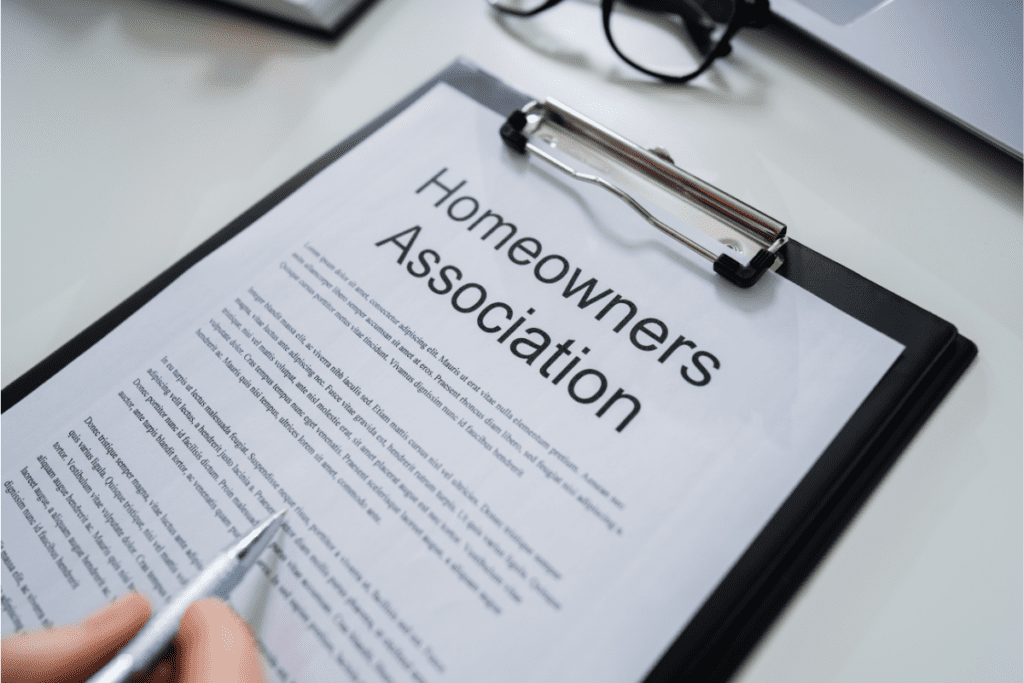Contents
Every homeowners association incurs expenses, whether that’s landscaping, routine maintenance, bookkeeping services, or legal fees. Generally speaking, these expenses are covered by the dues and assessments that homeowners pay month-to-month, or in some cases year-to-year. Sometimes, though, expenses might arise that simply aren’t covered by the annual budget. These can include emergency or major repair issues.
In these situations, the HOA Board is faced with tough decisions between just a few basic options. One is to take out a loan or otherwise go into debt in order to cover the unplanned expense. Another is to pay for it out of the reserve fund, which is stockpiled precisely to pay for major and unexpected capital expenses.
A third option is to take up a special assessment. This basically involves every unit owner making an additional one-time payment, on top of their regular assessments. As you can imagine, special assessments tend to be unpopular, which is why most members of the Board of Directors will be reticent. With that said, having a special assessment can sometimes be the most prudent way for the association to handle an unexpected capital need.
So what should Board members know about these assessments? And how can they be handled wisely? Consider a few guidelines from Kuester Management Group. Our company is well-known for providing HOA management in Huntersville NC, Charlotte NC, Myrtle Beach SC, and HOA Management in Fort Mill SC.
What Qualifies as a Special Assessment?

A good place to begin is with a quick, formal definition. Basically, what we’re talking about here are any extra or unusual fees that you may charge to your homeowners, under certain conditions. Usually, these assessments come in response to emergencies, including large-scale damage or capital repair issues.
Most HOAs have provisions in their bylaws authorizing the Board to leverage these assessments, above and beyond the normal assessments.
Why Charge a Special Assessment?
Most Board members will balk at the idea of asking homeowners to pay extra money, above and beyond what they already pay to access community amenities. With that said, there are some circumstances under which these assessments may be necessary.
Community Projects
For one thing, you may need to consider an assessment to cover any repairs that are required to common property following flooding, a hurricane, or some other type of natural disaster. Examples might include major damage to roads, roofs, or fences. Generally speaking, your budget won’t include provisions to pay for these major repairs to communal structures. After all, these repair needs are by their very definition unexpected.
There’s no upper limit on how much these repairs can cost, which sometimes means homeowners get stuck with some fairly hefty assessments. This is one reason why special assessments are to be used sparingly.
Replenishing the Reserve Fund
Another reason to consider an assessment is to augment what’s available in reserve. This fund includes money set aside for major, planned capital expenses. For example, if you know the sidewalks in your HOA will need to be replaced in a couple of years, you might plan on paying for it via the reserve fund. But if you don’t have much money in your reserves, and regular dues and assessments aren’t enough to pad it out, then taking up an additional assessment may be necessary.

Additional Considerations
HOA Board members should consider special assessments to be a necessary evil: They’re never fun or popular and should never be your first choice, but every now and then they may be your best bet.
As you think about leveraging an assessment in your HOA community, here are a few additional pointers to keep in mind.
Special Assessments Can Impact Buying and Selling
As a member of the HOA Board, one of your primary objectives is to ensure that the community is an enticing place for potential buyers. In some cases, though, extra assessments might complicate things. Keep in mind that real estate agents must disclose any current or ongoing assessments. Also note that the onus to pay this assessment will be passed from seller to buyer. All that to say, some buyers will think twice before entering into a community that’s in the midst of an extraordinary assessment.
Parameters Should Be Clearly Defined by Your CC&Rs
As with anything else, Board members will want to carefully review the Association’s governing documents before they take action. These documents can provide clarity about how, when, and to what limit additional assessments may be levied. Also keep in mind that, if you don’t comply with what your CC&Rs tell you, it leaves the door open for homeowners to challenge your assessment. That’s never the outcome you want!
Communication is Critical
There’s no getting around the fact that requiring owners to pay more money, above and beyond what they’ve already budgeted, is going to be an unpopular opinion. The more your HOA resorts to additional assessments, the more your popularity will decline.
With all of that said, there are ways to mitigate the reputational damage. Mostly, we just recommend communication. Specifically:

- Be very clear in explaining the extenuating circumstances that have prompted the assessment. Make homeowners aware that you don’t want to ask for more money, but have no choice due to damage from a fire, flood, etc.
- Outline exactly what the special funds will be used for (e.g., repairing fences).
- Make it clear that you’ve sought multiple bids in an effort to keep costs to an absolute minimum.
- Reiterate that regular and reserve funds are intended for normal operational expenses and planned capital improvements, not for real emergencies.
- Be very direct in expressing how little anyone on the Board wants to do an assessment, letting homeowners know that this won’t be a normal or haphazard event.
- Point homeowners toward the specific CC&R sections that outline the Board’s powers to initiate an additional assessment.
- Use this opportunity to provide an update on the operating budget, planned capital projects, etc.
- Consider holding a town hall meeting, or at the very least letting homeowners know where they can send questions or concerns.
- With any hesitations or uncertainty, make sure you talk with your HOA attorney or with your HOA management company.
Frequently Asked Questions
What is the purpose of a special assessment?
If your association runs into a financial hardship, including emergency repairs or some other major expense that you hadn’t planned for, and if you don’t have sufficient funds in your operating budget, then you may need to take up this extraordinary assessment.
What is the difference between assessment and special assessment?
The former is an expected/anticipated expense that all homeowner associations require their members to pay. These funds go toward normal operating expenses. The latter is on top of the normal annual or monthly assessments, and goes toward unforeseen repairs.
Is special assessment a tax?
No, it’s not a tax; it’s an additional collection to help cover any major repair cost following a natural disaster or other unplanned event.
How can homeowners fight a special assessment?
Homeowners can only fight the assessment if it’s conducted in a way that is at odds with the CC&Rs of the HOA.
Are HOA fees tax deductible?
Generally speaking, fees you pay in an HOA, including during the assessment process, are not tax-deductible on your federal tax returns.

